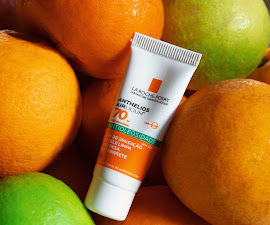Importance of sunscreen
Introduction to Sunscreen:
Sunscreen is a crucial component of skin care and sun protection. Its importance stems from the need to safeguard your skin from the harmful effects of ultraviolet (UV) radiation from the sun. Sunscreen is essential for protecting your skin from the harmful effects of ultraviolet (UV) radiation from the sun.
Protection from UV Radiation:
Sunscreen helps shield your skin from the damaging effects of UV radiation, which can cause sunburn, premature aging, and an increased risk of skin cancer. UV radiation is a known carcinogen, and prolonged exposure can have serious health consequences.
Skin Cancer Prevention: Regular use of sunscreen has been shown to reduce the risk of skin cancer, including melanoma, squamous cell carcinoma, and basal cell carcinoma. Skin cancer is one of the most common forms of cancer, but it is also highly preventable with proper sun protection.
Prevents Premature Aging:
UV radiation can accelerate the aging process of your skin, leading to wrinkles, fine lines, age spots, and loss of skin elasticity. Sunscreen helps maintain youthful and healthy-looking skin by protecting it from UV-induced damage.
Minimizes Sunburn:
Sunburn is not only painful but also harmful to your skin. Sunscreen acts as a barrier that reduces your skin's susceptibility to sunburn, allowing you to enjoy outdoor activities without the discomfort and potential long-term damage associated with sunburn.
Maintains Skin Health:
Sunscreen helps maintain the overall health of your skin by preventing damage to its DNA and reducing the risk of skin conditions such as actinic keratosis, which can progress to skin cancer if left untreated.
Prevents Hyperpigmentation:
UV exposure can lead to the development of hyperpigmentation, including sunspots and melasma. Sunscreen helps prevent these uneven skin tone issues by protecting your skin from excessive UV radiation.
Year-Round Protection:
UV radiation is present year-round, even on cloudy days and during winter months. Therefore, it's essential to use sunscreen daily, regardless of the weather or season, to maintain consistent sun protection.
Reduces the Risk of Eye Damage:
Some sunscreens are designed for use around the eyes, helping to protect the delicate skin in that area and reduce the risk of eye damage caused by UV radiation.
Enhances the Effectiveness of Other Skincare Products: Sunscreen can complement other skincare products by preventing UV radiation from degrading their active ingredients, allowing your skincare routine to be more effective.
Prevents Sunburn:
Sunburn is not only painful and uncomfortable but can also cause long-term damage to your skin. Sunscreen helps to prevent sunburn by blocking UV rays.
Reduces Skin Cancer Risk:
Prolonged exposure to UV radiation is a major risk factor for skin cancer, including melanoma, the deadliest form of skin cancer. Regular use of sunscreen can significantly reduce this risk.
Prevents Premature Aging:
UV rays can accelerate the aging process of your skin, leading to wrinkles, fine lines, and age spots. Sunscreen helps to maintain youthful-looking skin by preventing these signs of premature aging.
Protects Against Harmful UV Rays:
Sunscreen provides a protective barrier against both UVA and UVB rays. UVA rays can prematurely age your skin, while UVB rays are responsible for sunburn. Using broad-spectrum sunscreen protects against both.
Maintains Skin Health:
Sunscreen helps to maintain the overall health of your skin by preventing damage at the cellular level. UV radiation can lead to DNA damage in skin cells, which can result in various skin conditions.
Prevents Hyperpigmentation:
Sun exposure can exacerbate conditions like melasma and post-inflammatory hyperpigmentation. Sunscreen can help prevent these conditions from worsening and can even aid in fading existing hyperpigmentation.
Promotes Even Skin Tone:
Regular use of sunscreen can help prevent the development of uneven skin tone and blotchiness caused by sun exposure.
Preserves Collagen:
UV radiation can break down collagen fibers in the skin, leading to sagging and loss of elasticity. Sunscreen can help preserve the structural integrity of your skin.
Minimizes Sun-Related Discomfort:
Sunburn can be extremely painful and can even lead to sunburn-related illnesses. Sunscreen helps prevent this discomfort.
Protection on Cloudy Days:
UV rays can penetrate clouds, so even on overcast days, your skin can be exposed to damaging radiation. Wearing sunscreen daily provides consistent protection.
Eye Protection:
Some sunscreens are formulated for the face and can protect the sensitive skin around the eyes from UV damage, reducing the risk of cataracts and other eye conditions.
Lowers Risk of Actinic Keratosis:
Actinic keratosis is a precancerous skin condition that is often caused by cumulative sun exposure. Sunscreen can reduce the risk of developing these lesions.
Supports Overall Health:
Skin health is an integral part of overall well-being. Protecting your skin from the sun's harmful effects contributes to your overall health and quality of life.
Conclusion:
It's important to choose a sunscreen with a high SPF (Sun Protection Factor) rating, apply it generously, and reapply it as needed, especially after swimming or sweating. Sunscreen should be part of your daily skincare routine, even on cloudy days or during the winter months, to ensure your skin remains healthy and protected from UV damage. To maximize the benefits of sunscreen, it's important to choose a broad-spectrum sunscreen with an appropriate sun protection factor (SPF) for your skin type and activity level. Additionally, applying sunscreen generously and reapplying it as directed on the product label is essential for effective protection. Overall, sunscreen plays a critical role in maintaining healthy, youthful skin and reducing the risk of skin cancer.





.jpg)
.png)
Comments
Post a Comment